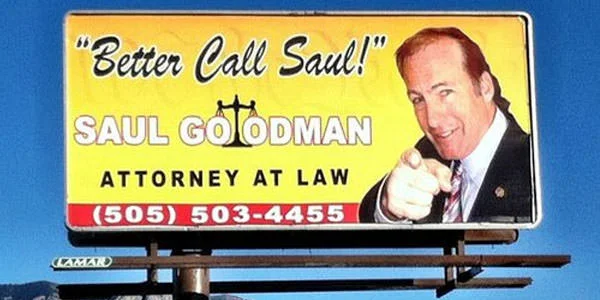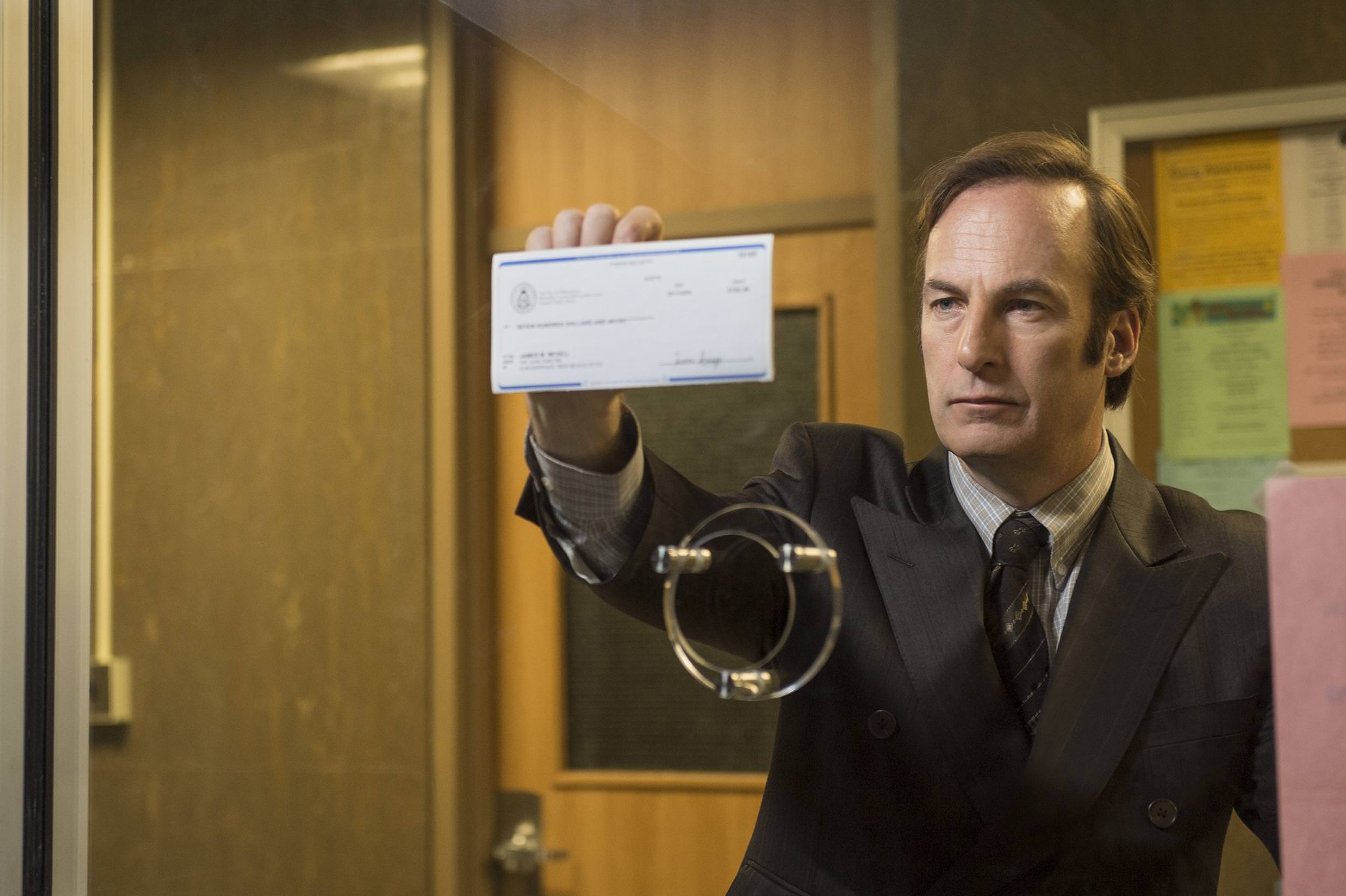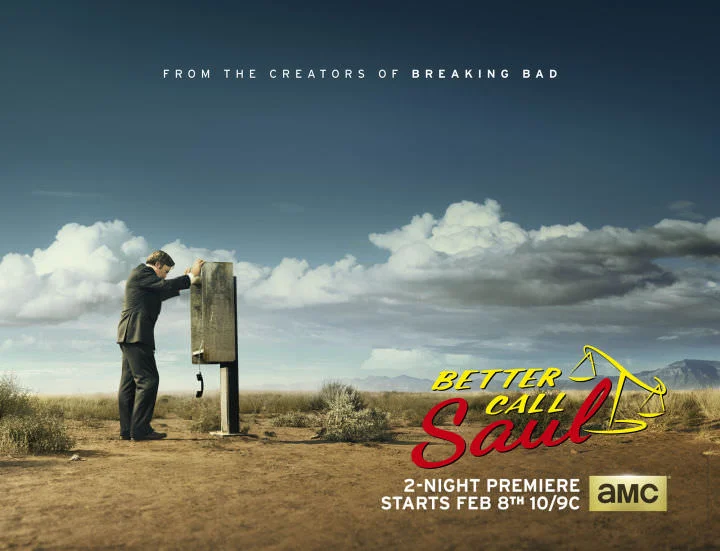With the world now being a few days removed from the Better Call Saul premiere, and me wanting to do an article on something other than a movie, I decided on a review of the two debut episodes and an analysis on where this show might be going.
(Warning. Spoilers Ahead.)
What were we expecting? It would have been wise to anticipate little, given that the series is “the first spin off of what could be considered the golden centerpiece of premium cable shows.” Bob Odenkirk, the series’ star, called it “an origin story, a superhero story. Saul has a new name and a costume—the hair, the suit.” His character, Saul Goodman, Walter White’s endearingly sleazy lawyer on “Breaking Bad,” was born James McGill, and that’s who this prequel would give us: Jimmy, on his way to becoming Saul. This was not an encouraging setup in my opinion. Origin stories, as the endless stream of superhero movies illustrates, are usually boring, and for an obvious reason: they relay everything that happens to their protagonists up to when their stories properly begin, and they become interesting.
Another way of interpreting that origin-story idea was to think of “Better Call Saul” as “Breaking Bad” in a mellower mood—a series that would follow the transformation of its protagonist, from semi-decent human being to all-out legal sleazebag. The pilot played into this interpretation, opening with a sequence that recalled its parent show’s narrative style by deploying a flash-forward. It was six minutes long, black and white, and set at a Cinnabon in Omaha, to the delight of “Breaking Bad” obsessives everywhere. (“If I’m lucky, in a month from now, best-case scenario, I’m managing a Cinnabon in Omaha,” Saul said in the series’ second-to-last episode.) There was our main man, Saul, in a mustache, trying to lie low, and reliving the Goodman glory days by watching his old commercial spots on VHS. Judging just from this setup, the series seems poised to trace the rise and fall that brought him to this post-Walter White nadir.
But a TV series with that dramatic arc which in the development process evolved from a half-hour comedy to an hour-long drama, may ultimately evolve into something more interesting than many viewers expected it to be.
It would almost be a certain trace of a faint line compared to a much bigger bolder stroke. You see Jimmy’s path to Saulhood has none of the sweep of Walt’s metamorphosis. When “Better Call Saul” jumps back to 2002, we learn that Jimmy is already a petty underhanded lawyer trying to make a living off of wrongdoers. The clients whom he pursues have embezzled a million dollars; they haven’t killed anyone. Still, he knows they’re guilty, and he hatches a variety of shady schemes to get their business. As the show unfolds, we may already see the last traces of his dignity and his conscience sanded away, and he may even begin to facilitate the crime rather than merely stalk its perpetrators in search of more billable hours. And, of course lest we forget, he will change his name. But he’s basically already that guy in my opinion. When the première ended with a glimpse of one of “Breaking Bad” ’s super villains—Tuco, whose cameo was thankfully edited out from the advanced reviews—it seemed that “Better Call Saul” might be content to rely on borrowed excitement from a show that we all already enjoyed.
Happily, in episode two, Tuco’s presence gives way to an underling with charisma and room to develop: Nacho (Michael Mando). For “Better Call Saul” to succeed, it will need characters like him to become as robust and fascinating as those who revolved around Walt—because, ultimately, the way this show succeeds in my eyes is that the show needs to tell a story that’s bigger than its protagonist. And in the second episode we got a sense of what that bigger story could be: the show could follow the money.
Like “Breaking Bad,” “Better Call Saul” begins with its protagonist in rough financial shape, driving a glorified egg beater around town—with on-the-nose irony, it’s a Suzuki Esteem— while operating his legal practice out of a spare room in a Korean nail salon (now I see where he got the idea for Jesse to launder his money). Now, where Walter White’s story largely left home-economic concerns behind to grapple with more grandiose questions of human nature, the ballad of Jimmy McGill seems suited to grubbier matters. The embezzlers Jimmy wants to represent, Craig and Betsy Kettleman, are a nuclear family that are evidently fine with ripping off New Mexico taxpayers (the husband is the county treasurer). Better-paid lawyers seem to be stiffing Jimmy’s brother (Michael McKean), a law partner who’s come down with an apparently psychological illness, out of a decent financial shake. Meanwhile, public defenders are left haggling with parking lot attendants (played by a returning Jonathan Banks, which has another arc I can’t wait to see pan out from cop, to parking attendant, Gus) over a couple of dollars and the correct number of validation stickers. Perhaps all these unfairnesses are not unrelated. Perhaps Jimmy, before he decides to make a living off this corrupt system, could figure something out about how it fits together.
If “Better Call Saul” takes that road, the show might owe something to “The Wire” as well as “Breaking Bad.” Granted, this series does not have the sociological ambitions and reportorial background of David Simon’s five-season study of struggling Baltimore. But, on a more modest scale, and working in a different register, “Better Call Saul” may reflect that show’s influence. Jimmy, in a meeting with Nacho at the end of episode two, tries to assure the drug dealer that he does not plan to pursue his own criminal enterprises. “I’m not in the game,” he says. “I promise.” But the lesson of “The Wire,” memorably shared in a great courthouse scene featuring a lawyer even shadier than Jimmy McGill, is that, “it’s all in the game.” Maybe Jimmy will learn that, too, before he starts to play the Game Of Saul Goodman. In short, so far so good. 8.5/10
Better Call Saul now on Monday nights on AMC




